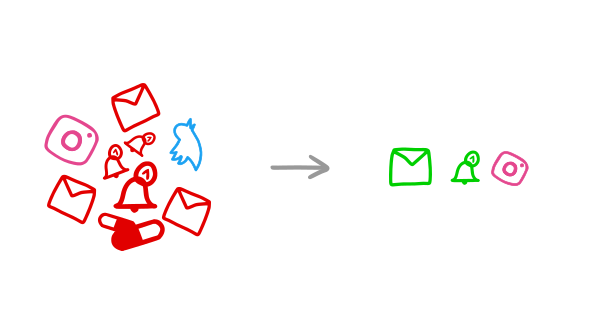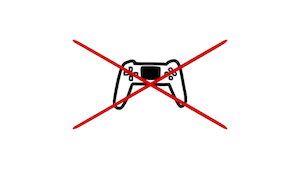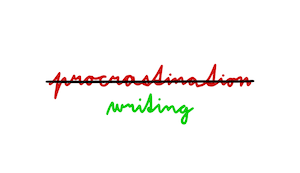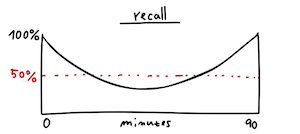How to go back to things you used to be addicted to in the past

Oh boy, this is probably going to be a controversial topic to cover.
We believe that addiction functions as a learned escape from emotional discomfort.
If we learn to tolerate the emotional discomfort and remove the causes of it, we might no longer have the need to compulsively engage in the addictive behavior.
Now, one of the choices might be to abstain forever. This is totally okay (especially with substances like drugs, alcohol, cigarettes). However, sometimes abstinence is impractical, particularly when it comes in regards to our social lives.
Going back to the addictive behavior is for people who either or both:
A: Don’t want to feel like being slaves to addiction that they have to avoid until the rest of their lives
B: Know that the behavior offers benefits if one engages in it in a healthy way,
Additionally, for certain things (like the Internet), it seems we don’t have much of a choice and we need to find this healthy way while using them all the time. We talk about this case here.
There are 3 categories (this is subjective so you might feel a little bit differently):
Things it’s probably better to stay away from forever:
Smoking
Drugs
Things you might want to go back to that potentially bring you benefits:
Alcohol → being able to do social drinking
For example, drinking a couple of beers is one of the most common ways of socializing (especially for men) here in the Czech Republic. Not drinking carries serious social repercussions - e.g. people won’t invite you to go out with them, or you won’t make a business deal over drinks.
Others might add weed (to relax or lessen pain) or smoking (to be able to socialize at smoke breaks) into this category.
You might want to go back to:
Video games - to socialize with others.
Twitter - to help you meet new people and get interesting ideas.
Instagram - to share memories with friends.
This is probably the category one might want to consider coming back to. Of course, you might find that having no choice (abstinence) is easier than trying to moderate.
Things that are impossible to live without or are a great pain to do so:
Smartphones
The Internet
We can’t function normally without the Internet or a smartphone, and that’s why it’s difficult to moderate in the first place.
However, it’s possible and it’s important to learn to moderate how we use them.
Because then we can use these as valuable tools, instead of them being an endless time suck. We talk about more it here.
How to go back to addictive things
First, make sure you meet these 3 conditions:
- Enough time has passed—we’re talking of months or years—your brain is rewired.
- You’ve learned to deal with your emotions better,
- Your life is better than it used to be - you don’t have the need to escape that much
Though, there is another condition to consider and it might be the most important one. Make sure you don’t desire the thing anymore. Be honest with yourself here. When you think about the thing you were addicted to, do you feel like you need to do it? If you want to learn more about reducing or removing that sort of desire, read this. If you do desire it in some deep corner of your mind (even though you might consciously deny it), you’re probably still addicted and we don’t recommend you to come back.
If you meet the conditions above, proceed.
Be extremely deliberate about going back to previously addictive behaviors
Even if you feel like you meet the conditions above, you might be wrong. So, conduct a couple of tests and see if you pass them.
Do time-restricted experiments like a scientist would. So even if it starts becoming compulsive once again, you’ll stop doing it.
Be methodical about it. Explore how it makes you feel.
Download Instagram and try to use it in a healthy way - just for the weekend. How does it make you feel? If at the end of Sunday, you find out you spent 4 hours in the app, it’s not a good idea to go back to using that particular app.
If you start using the thing compulsively, it might mean that you’re not ready to do it yet. Your brain might be simply too strongly wired to use it compulsively.
Download a video game and allow yourself to play it for an hour. If an hour turns into 8, that’s a warning sign to stay away from it.
Usually, one of two things happen:
1. The activity is now uninteresting
Opening Instagram makes you realize how narcissistic people are and how those posts aren’t really relevant to your daily life
Watching Twitch makes you realize how lonely everyone engaging in the chat is.
Having a brain fog after drinking is terrible.
You might realize you don’t want to be doing it anymore.
Or maybe you will feel no longer a pull towards it - this means you’re free of addiction.
2. The activity is fun again
This might be a double-edged sword.
For example, playing video games feels fun again - which is great. But it can also be so much fun that you start overdoing it once again.
If it feels fun once again and it feels like it would be something beneficial to have in your life, take the next step.
Do the behavior while following some rules
So while the things might be beneficial or fun for you, you still want to ensure that they don’t become compulsive once again. Setting a few rules and actually following them is a good sign of you being in control.
Here are some examples:
If you’re addicted to social media, you might use them in a time-limited window once a week or a few times a week.
Gaming 1 or 2 days per week after finishing all your responsibilities.
Watching Netflix only with friends on the weekend.
Deal with these like temporary experiments, nothing set in stone. If you can’t do it, you’re not ready… or you don’t have to ever return to the potentially addictive behavior if you don’t want to.
Being free of addiction
(Mat) I used to be addicted to video games, nowadays I don’t play anymore because I have other interests and feel like games sap too much mental energy with no payoff.
But for example, when I’m at a friend’s place and guys suggest playing FIFA, I simply play it, enjoy a little bit of banter, and leave it at that.
I consider this a much healthier approach than thinking “omg, I’m super addicted to video games so I can’t touch them because that will send me into a downward spiral of gaming”. And I used to be addicted a lot - like a crackhead but for video games.
Breaking your shackles, overcoming addiction, and then not being worried about it anymore. This is what growth as a person and becoming free of addiction looks like.



